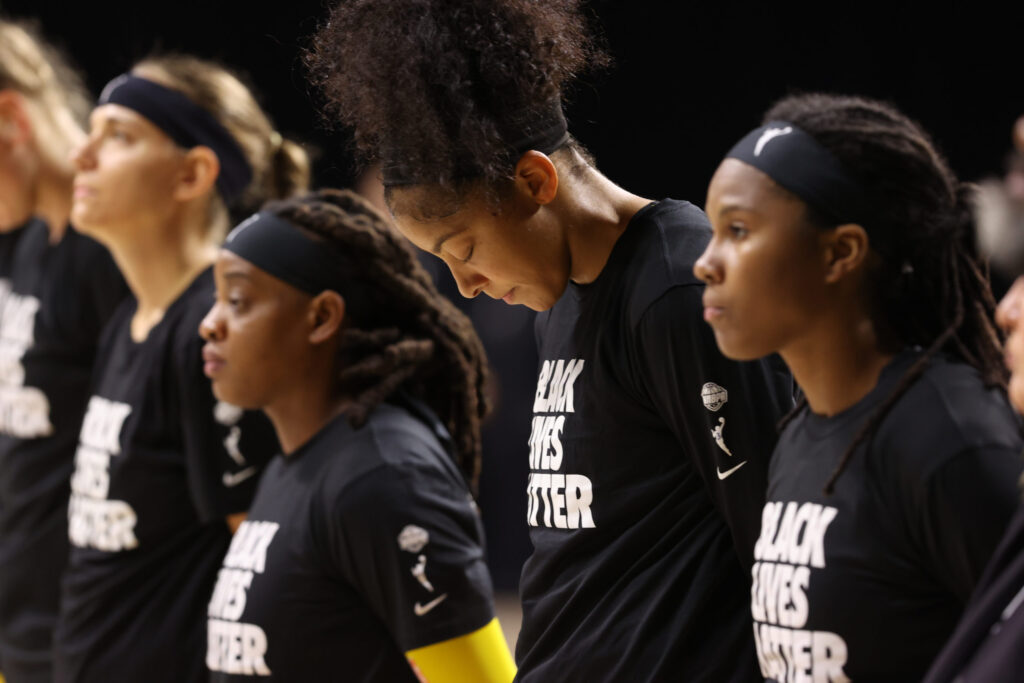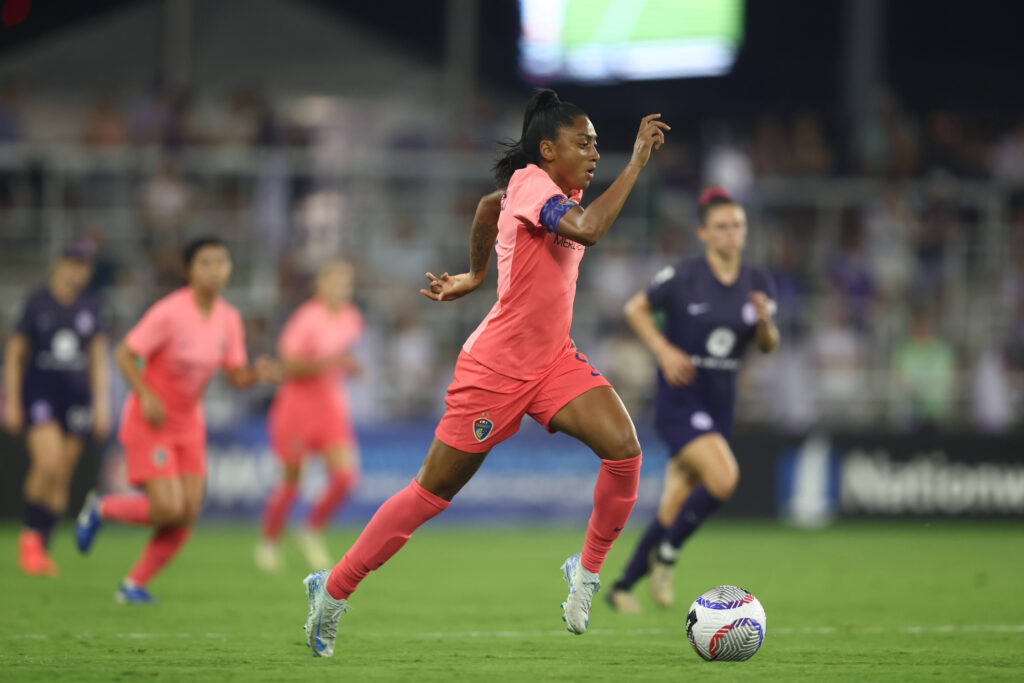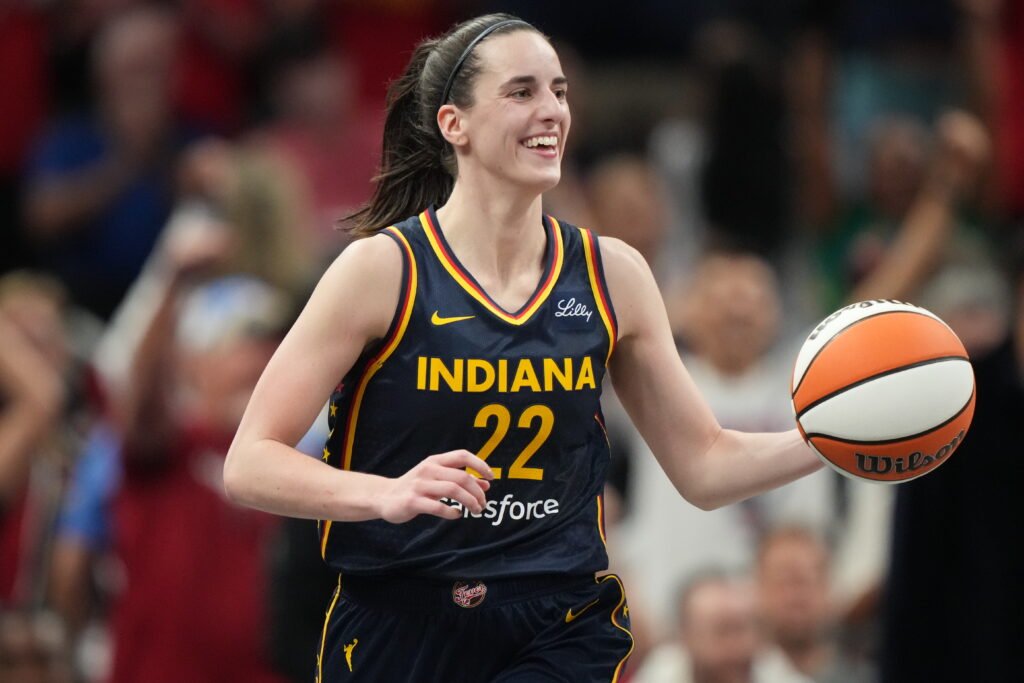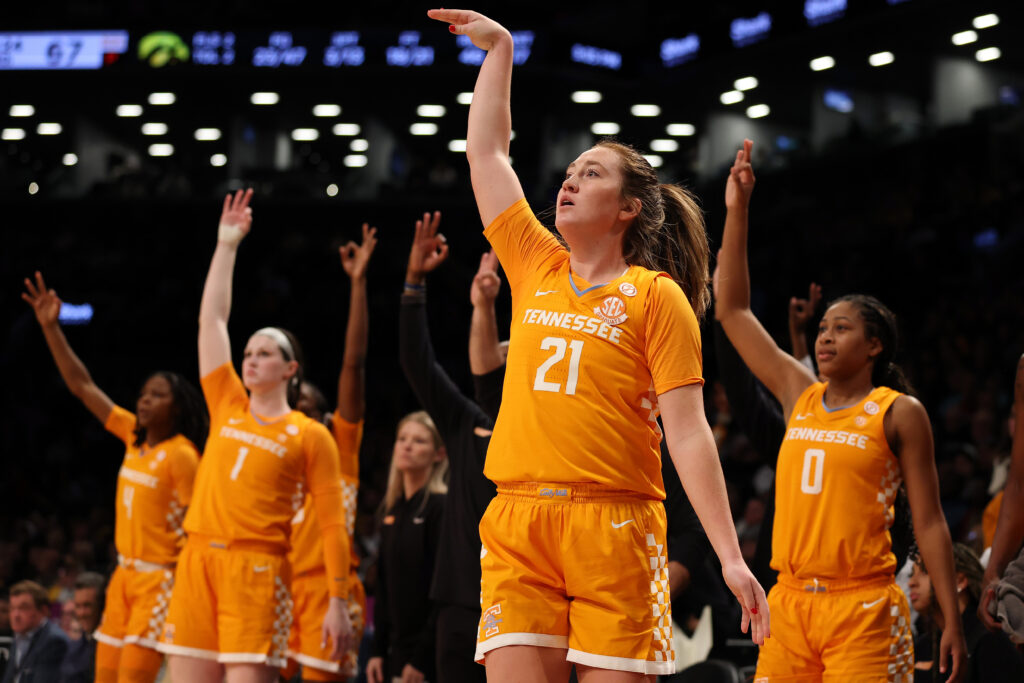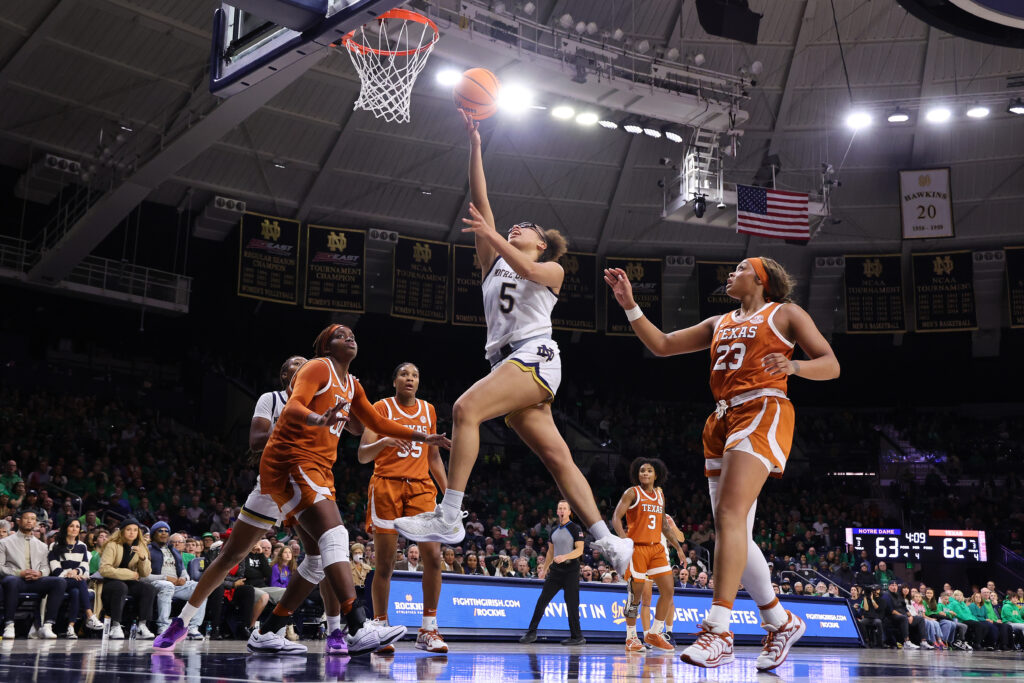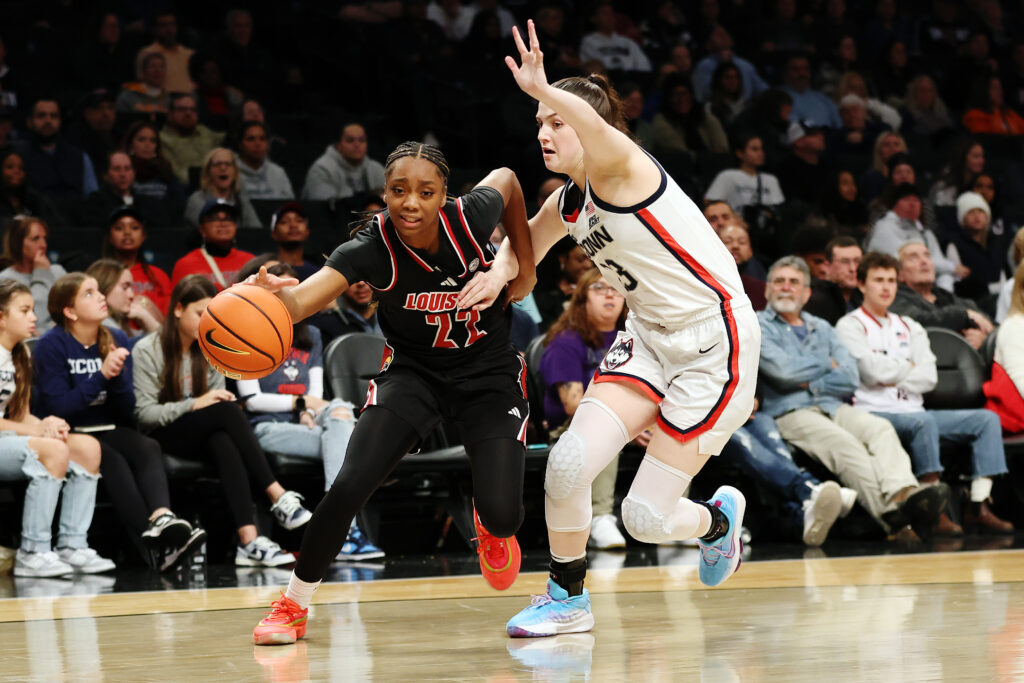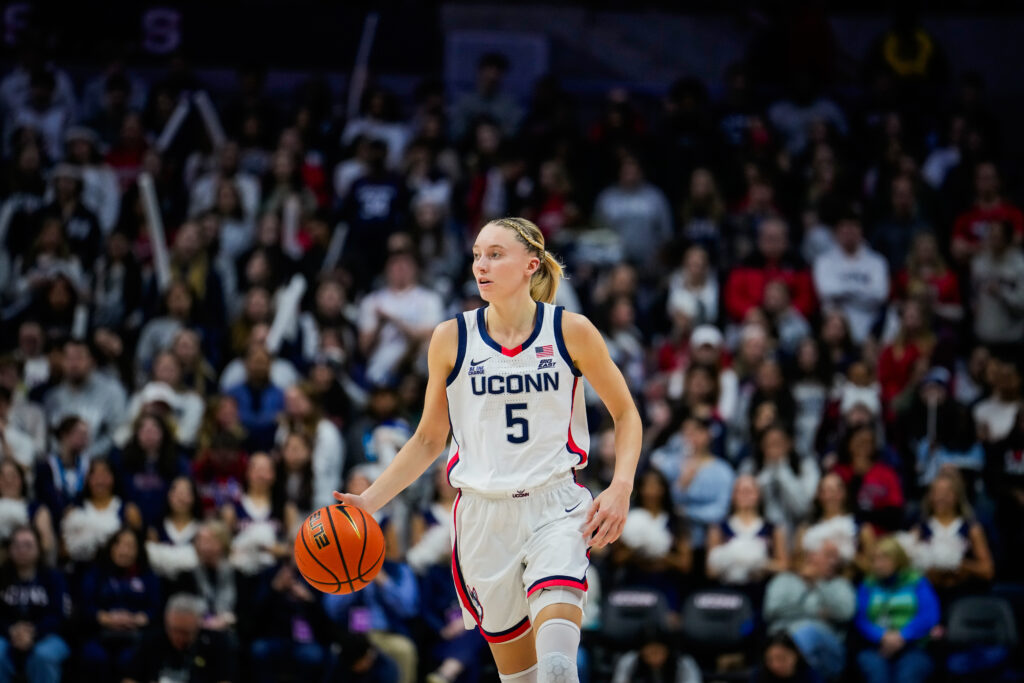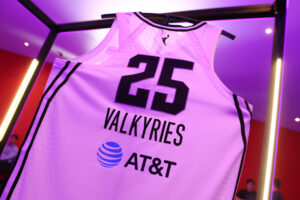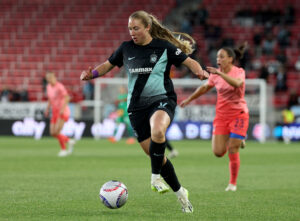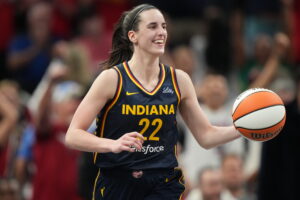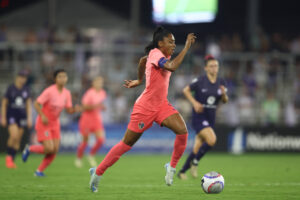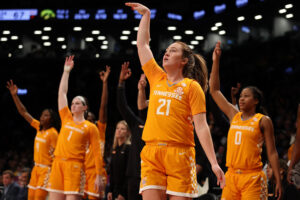Leading up to the 1968 Olympics, where Tommie Smith and John Carlos raised their black-gloved fists and Wyomia Tyus protested by wearing dark shorts, the Olympic Project For Human Rights held meetings to discuss plans for a unified initiative advocating for human rights. The group organized a boycott of the Mexico City Games, but after several athletes backed out, the plan fell through.
Collective activism is hard to orchestrate. Getting groups of people to act in concert is challenging enough, even when participants aren’t asked to risk their livelihood. In the aftermath of the podium protest, Smith and Carlos lost everything.
One group of sportswomen have continued to overcome the challenges of collective action: members of the Women’s National Basketball Association. The predominantly Black and significantly queer sports league has repeatedly taken stands in political and cultural battles over gender pay equity, racism, policing, LGBTQIA rights, reproductive rights and voting rights.
In the final installment of our Black History Month series, Just Women’s Sports recognizes the women of the WNBA for their unified acts of resistance and unrelenting commitment to bettering the world around them.
The catalysts
Months before Colin Kaepernick took a knee, on July 9, 2016, four members of the Minnesota Lynx donned black T-shirts that read “Change Starts with Us: Justice and Accountability,” ushering in a wave of activism in professional sports. Their protest came days after Philando Castile was shot and killed by an officer during a traffic stop in Falcon Heights, Minn., and Alton Sterling was killed by the police outside of a convenience store in Baton Rouge, La.
This was four years ago today.
— Minnesota Lynx (@minnesotalynx) July 9, 2020
We still have a long way to go.
Change starts with us. pic.twitter.com/N4NHrjnYwD
The next day, New York Liberty players also wore black T-shirts, this time with the phrases “#Black Lives Matter,” “#Dallas5” (in honor of the five Dallas police officers shot during protests on July 7, 2016), and “#_____” (representing future deaths at the hands of police). Players on the Indiana Fever and the Phoenix Mercury joined in protest by wearing plain black tees during pregame warmups.
While NBA players may have more money to lose, WNBA players have more at risk when deciding to protest. These women knew they would likely face retaliation and condemnation by police, fans and the league, and they still decided to take a stand.
The women were right. In response to the Lynx’s actions, Minnesota police officers walked off their security posts during their game and the WNBA issued fines to the teams and players involved in the protest. Meanwhile, NBA players were being applauded for their activism at the ESPYs.
The women of the WNBA, however, “refused to be silent.” While accepting her award for Player of the Month, Tina Charles of the Liberty turned her warmup shirt inside out to protest the fines. Charles and others voiced their opposition to the fines on social media and initiated a media blackout, only answering questions related to police brutality and systemic racism. Due to the resulting media attention, the league rescinded the fines.
Activism continues
In August 2017, a white nationalist rally over the removal of a confederate statue, prefaced by a torchlit vigil, turned fatal in Charlottesville, Va. Shortly after, WNBA players took action. Five teams stood with their arms interlocked during the national anthem in a show of unity against bigotry, hate and racism. The Liberty also hosted a town hall to discuss community solutions to racism and policing.
The following month, after President Trump declared that NFL owners should fire athletes who take a knee and called protestors “sons of b—es,” the Lynx knelt and linked arms as the national anthem played during the 2017 WNBA Finals. Their opponent, the Los Angeles Sparks, walked off the court entirely, opting to stay in their locker room during the anthem in a show of protest.
Apex of activism
In 2020, COVID-19 hit. Sports ceased. George Floyd died under the knee of Minneapolis police officer Derek Chauvin over an alleged counterfeit $20 bill. As multiple officers held Floyd down in the street, Chauvin knelt on Floyd’s neck for nine minutes and 29 seconds.
When the WNBA commenced their condensed, 22-game season later that summer at IMG Academy in Bradenton, Fla., players wore shirts bearing the name “Breonna Taylor” and played on courts adorned with the phrase “Black Lives Matter.” Before opening tipoffs, a 26-second moment of silence was held in memory of Taylor, the 26-year-old certified EMT who was fatally shot by police on March 13, 2020 during a raid on her Louisville apartment. The players dedicated the season to Taylor, and in honor of the #SayHerName campaign, each week they shared the story of a Black woman who was killed by law enforcement.
That season, the league also formed a Social Justice Council that has since spearheaded initiatives around anti-transgender legislation, public health and voting rights.
Not all were happy with the league’s focus on social justice. Atlanta Dream co-owner and Georgia Republican Senator Kelly Loeffler vocally opposed the players’ dedication to advancing the Black Lives Matter movement and called for a depoliticization of sports. When calls for Loeffler to sell her shares of the team went unanswered, the players took an innovative approach. The entirety of the Atlanta Dream, along with players from other teams, sported “Vote Warnock” shirts in support of Loeffler’s Democratic challenger, Rev. Raphael Warnock, a campaign that proved to be instrumental in flipping the Georgia Senate seat.
We are @wnba players, but like the late, great John Lewis said, we are also ordinary people with extraordinary vision. @ReverendWarnock has spent his life fighting for the people and we need him in Washington. Join the movement for a better Georgia at https://t.co/hC8iF9urak pic.twitter.com/mvN5e9m4oO
— Elizabeth Williams (@E_Williams_1) August 4, 2020
Less than a month later, Jacob Blake, an unarmed Black father, was shot by Wisconsin police while his children watched from a nearby car. Players on four WNBA teams scheduled to play that night postponed their games, as did most professional sports teams nationwide. When the Mystics, Dream, Sparks and Lynx met on the court to kneel in solidarity later that evening, the Washington team appeared in shirts that spelled out Jacob Blake’s name, each with seven bullet holes, representing the number of shots fired at Blake from close range.

Unrelenting
While George Floyd’s death initiated protests across the globe and propelled a moment of racial reckoning unseen in American history, a year following his death, white support for the Black Lives Matter movement had waned significantly. The women of the WNBA, however, remained committed to social justice.
On the one-year anniversary of Floyd’s murder, the WNBA and WNBA Players Association (WNBPA) released statements honoring Floyd’s life. Teams and players from around the league advocated for continued criminal justice reform, encouraging the public to call on their senators to pass the George Floyd Justice in Policing Act. Ariel Atkins and Natasha Cloud of the Washington Mystics even declined to answer basketball-related questions during a postgame press conference, opting to raise awareness for the bill instead.
The WNBA players’ activism has never been contingent upon the public’s appetite or confined to one issue. Last October, WNBA players took out a full-page ad in The New York Times denouncing a Texas anti-abortion law. From the league’s inception, its players have fought for what they deemed important, starting with equality. The very presence of women, Black Americans, queer people and non-binary folks lining the court and insisting that they have the right to play and make a living is a political act in and of itself.
Mariah Lee is a professional athlete and freelance writer who specializes in the intersection of race and sports. She holds a B.A. from Stanford University and a M.S. from the Wake Forest School of Business. Follow her on Instagram @merdashewrote.
